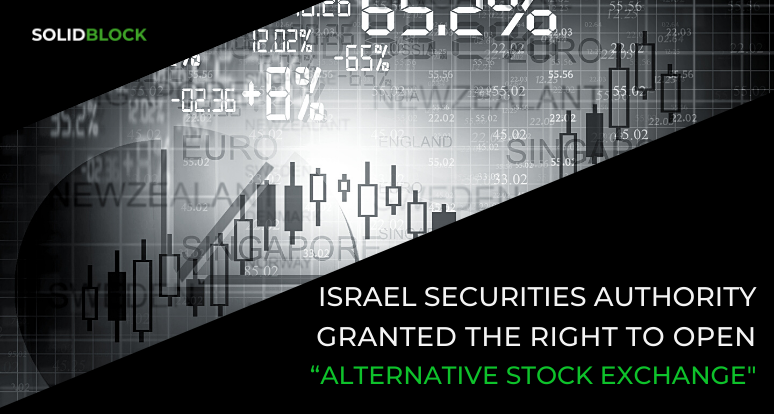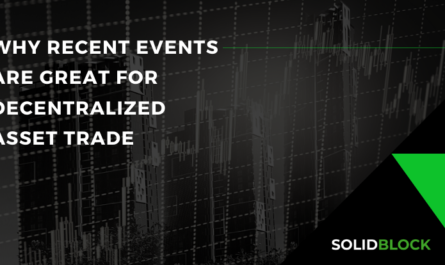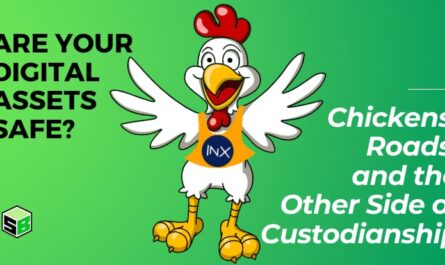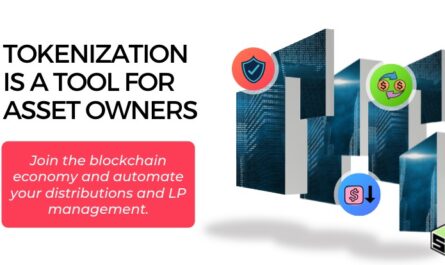
For the first time in history, the Israel Securities Authority, a leader in the regulatory space, has been granted the right to open an “alternative stock exchange.” The Authority (the country’s securities regulator) has been given permission to allow DLT (Distributed Ledger Technology) Securities Exchanges to operate from Israel. What this means, in effect, is the creation of a second stock exchange, which could establish new digital and other more sophisticated trading platforms, based on the blockchain.
This came about through a bill submitted by Finance Minister Israel Katz and approved by Israel’s Ministerial Committee for Legislation which would establish such a “designated stock exchange” in Israel and new trading platforms, especially by removing barriers to licensing. The law will include increasing the Authority’s supervisory authority over underwriters and distributors, and is intended to enable it to “insure” the risks for the benefit of investors.
This would include removing barriers to licenses for stock exchanges as well as determining the regulations that apply to corporations whose securities will be listed for trading on the stock exchange. This would take into consideration the nature of the stock exchange’s activities and the corporations whose securities will be traded on it, the types of its customers or the types of securities that will be traded on it. Although the idea has been on the drawing board for some time, the bill is intended to update the existing legal situation, including taking into consideration DLT (Distributed Ledger Technologies), the technology underlying blockchain.
In January 2020, the Authority issued a call for entrepreneurs interested in setting up digital trading platforms, based on new technologies. According to the conclusions of the committee examining the institutionalization of digital markets in Israel, it was found that these technologies have “significant potential to reduce trading costs in the entire value chain, from the registration and distribution phase to the clearing and custody phase.” Following the publication of the call, a number of entrepreneurs expressed interest in examining the establishment of various trading platforms.
Israel Finance Minister, Israel Katz said today as published in YNet: “Today, we took an important step in which the Ministerial Committee for Legislation approved the opening of another stock exchange, which will be of great value to the Israeli economy, especially against corona. This will promote the State of Israel towards the regulations accepted in other countries of the Western world, and will promote raising capital and debt of small businesses from those that are commonly issued on the stock exchange.”
Israel joins a host of other countries whose stock exchanges are either interested in or have already started to implement blockchain technology. These include: the US (ATS), Abu Dhabi (Abu Dhabi Securities Exchange (ADX), Australia (Australian Stock Exchange (ASX), Canada, Chile, England, India (National Stock Exchange of India), Japan (Japan Exchange Group), Hong Kong, Korea, Luxembourg, Malta, Myanmar, Russia, and Thailand.
Companies like SolidBlock, which provide issuance platforms for digital securities rely on global DLT exchanges, such as tZero, INX, Rialto, Texture Capital, Atlas One, iStox and others for providing liquidity and secondary market trading. Most of these exchanges are Automated Trading Systems (ATSs) with a digital securities trading license in the US although they are starting to appear globally, like Atlas One in Canada and iStox in Singapore. INX, by contrast with others, is the only company publicly registered in the US, making it the only public DLT exchange with a license to operate in the US. There are also several traditional stock exchanges, like Merj registered in the Seychelles, that trade tokenized securities.
The move of ISA to allow DLT exchanges in Israel will put Israel on the map once again when it comes to financial technologies and capital markets innovation. Israeli regulators and legislators are known for taking a measured but proactive approach when it comes to blockchain and cryptocurrency adoption. Israel, a startup nation, relies on the tech sector for the majority of its GDP growth, and any new technology that provides growth in the high tech sector investments and revenues is welcome in the country, within certain measures and constraints related to compliance and consumer protection. The new move by the legislators allowing DLT exchanges in Israel is expected to generate interest from quite a few companies in Israel and abroad, and companies like SolidBlock are welcoming the move as it will provide additional outlets for trade of the issued digital securities, especially for Israelis, and will help create liquidity in the market.

 by
by 

